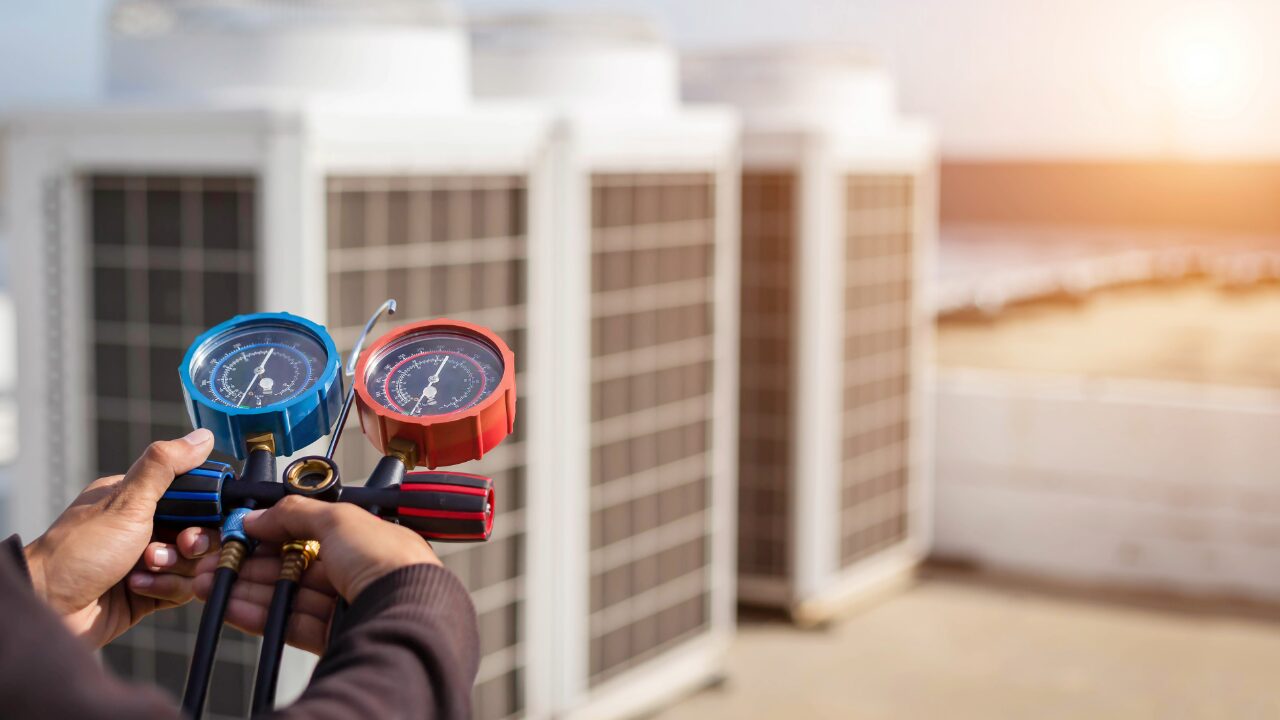How to Choose a New HVAC Unit for Your Home
Selecting a new HVAC (Heating, Ventilation, and Air Conditioning) unit for your home is a significant decision that impacts your comfort, energy bills, and overall quality of life. With the myriad of options available, making an informed choice can be daunting. Here’s a comprehensive guide to help you navigate the process and choose the perfect HVAC unit for your home.
Assess Your Home’s Needs
1. Determine the Size your home needs
The size of your HVAC unit must match your home’s square footage. An undersized unit will struggle to heat or cool your home, while an oversized unit will cycle on and off too frequently, wasting energy and causing wear and tear. A professional load calculation, which considers factors like square footage, ceiling height, insulation, and windows, is essential for determining the correct size.
2. Evaluate Your Local Climate
Your local climate heavily influences the type of HVAC system you need. In colder climates, a furnace or a heat pump that works efficiently in low temperatures is ideal. In warmer areas, a robust air conditioning system or a heat pump with excellent cooling capabilities is crucial.
3. Consider Your Existing HVAC System
If you’re replacing an existing system, consider its type, age, and efficiency. Upgrading to a more efficient model or a different system type (e.g., switching from a furnace to a heat pump) can offer significant benefits.
Types of HVAC Systems
1. Central Air Conditioning and Heating
These systems use a network of ducts to distribute cooled or heated air throughout your home. They are effective and efficient for larger homes but require existing ductwork or the installation of new ducts.
2. Ductless Mini-Split Systems
Ideal for homes without ductwork, ductless mini-split systems consist of an outdoor unit connected to indoor air handlers. They offer flexibility in zoning, allowing you to control the temperature in individual rooms.
3. Heat Pumps
Heat pumps are versatile, providing both heating and cooling. They are highly efficient, particularly in moderate climates, and can significantly reduce energy bills.
4. Furnaces
Furnaces are common in colder climates and can be powered by natural gas, oil, or electricity. They are effective for providing consistent and powerful heat.
5. Hybrid Systems
These systems combine a heat pump with a furnace, optimizing efficiency by switching between the two depending on the temperature.
Energy Efficiency of your new HVAC System
1. SEER and HSPF Ratings
For air conditioners and heat pumps, look for the Seasonal Energy Efficiency Ratio (SEER) and Heating Seasonal Performance Factor (HSPF) ratings. Higher ratings indicate better efficiency. A SEER rating of 14 or higher and an HSPF rating of 8.2 or higher are generally recommended.
2. AFUE Rating
For furnaces, the Annual Fuel Utilization Efficiency (AFUE) rating measures efficiency. Aim for a furnace with an AFUE rating of 90% or higher.
3. HVAC Energy Star Certification
Units with Energy Star certification meet strict efficiency guidelines set by the U.S. Environmental Protection Agency, ensuring you’re choosing an environmentally friendly and cost-effective system.
Additional Features
1. Smart Thermostats
Modern HVAC systems often come with smart thermostats that allow you to control your home’s temperature remotely, set schedules, and optimize energy usage.
2. Air Quality Features
Consider systems with built-in air purifiers, dehumidifiers, or advanced filtration systems to improve indoor air quality.
3. HVAC System Noise Levels
Check the decibel (dB) rating of the unit. Quieter units (below 60 dB) can significantly enhance your comfort, especially if the unit is installed near bedrooms or living areas.
Professional Installation and Maintenance with Ray French AC & Heat
1. Hire a Qualified Contractor
Proper installation is crucial for your HVAC system’s performance and longevity. Hire a licensed, experienced contractor who can ensure the system is installed correctly and safely.
2. Regular Maintenance
Routine maintenance, such as changing filters, cleaning coils, and inspecting ductwork, keeps your HVAC system running efficiently and can prevent costly repairs down the line.
Budget and Financing
1. Initial Cost vs. Long-term Savings
While high-efficiency units may have a higher upfront cost, they often lead to substantial savings on energy bills over time. Consider your long-term budget when making your decision.
2. Financing Options
Many HVAC companies offer financing plans, allowing you to spread the cost of your new system over several months or years. Look for promotions, rebates, or tax credits that can reduce your overall expenditure.
Ready for your new HVAC system?
Choosing a new HVAC unit for your home involves careful consideration of your home’s needs, climate, and budget. By understanding the different types of systems, prioritizing energy efficiency, and ensuring professional installation and maintenance, you can make a choice that will keep your home comfortable and your energy bills manageable for years to come. Take your time, do your research, and consult with professionals to find the perfect HVAC solution for your home.


